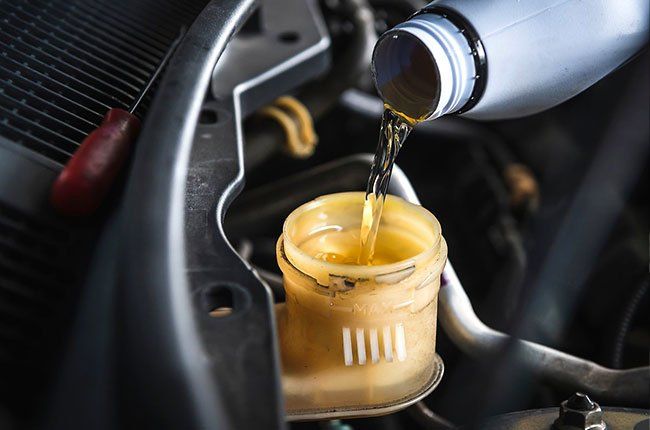Your car is like the human body—it needs fluids to function properly. Just as blood, water, and oxygen keep us alive, essential car fluids keep your vehicle safe, efficient, and reliable. Neglecting these fluids can lead to costly repairs—or worse, roadside breakdowns.
In this guide, we’ll walk you through the 10 essential car fluids every driver should check regularly, what they do, and how to know when it’s time for a refill or replacement.
1. Engine Oil
-
What it does: Lubricates engine components, prevents overheating, and reduces friction.
-
When to check: At least once a month or before long trips.
-
Signs of trouble: Dirty, dark, or gritty oil; dashboard oil light.
Pro tip: Change your oil every 5,000–7,500 miles (depending on your car and oil type).
2. Coolant (Antifreeze)
-
What it does: Keeps your engine from overheating in summer and freezing in winter.
-
When to check: Every few weeks.
-
Signs of trouble: Overheating, low reservoir level, sweet smell under the hood.
Pro tip: Never open the radiator cap when the engine is hot.
3. Transmission Fluid
-
What it does: Keeps your gears shifting smoothly and prevents transmission wear.
-
When to check: Monthly for automatics; less frequently for manuals.
-
Signs of trouble: Difficulty shifting gears, grinding sounds, or delayed movement.
Pro tip: Transmission fluid should be bright red. If it’s brown or smells burnt, it’s time for a change.
4. Brake Fluid
-
What it does: Transfers the force from your foot on the brake pedal to the brakes themselves.
-
When to check: Every time you service your car.
-
Signs of trouble: Soft or spongy brake pedal, warning light, or reduced stopping power.
Pro tip: Never ignore brake fluid issues—this is a critical safety component.
5. Power Steering Fluid
-
What it does: Makes steering smooth and easy.
-
When to check: Monthly.
-
Signs of trouble: Hard-to-turn steering wheel, whining noise when turning.
Pro tip: Low power steering fluid can also mean a leak—don’t ignore it.
6. Windshield Washer Fluid
-
What it does: Keeps your windshield clear for safe driving.
-
When to check: Weekly, especially in dusty or rainy seasons.
-
Signs of trouble: Spray not working or streaky windshield.
Pro tip: In winter, use washer fluid with antifreeze to avoid freezing.
7. Differential Fluid
-
What it does: Lubricates the gears that transfer power from the driveshaft to the wheels.
-
When to check: Every 30,000–60,000 miles.
-
Signs of trouble: Whining or clunking noises from the rear of the car.
Pro tip: Often overlooked, but critical for long-term car health.
8. Air Conditioning (AC) Refrigerant
-
What it does: Cools the air inside your car.
-
When to check: If AC isn’t blowing cold air.
-
Signs of trouble: Warm air from vents, hissing sounds.
Pro tip: Recharging refrigerant should be done by a professional to avoid damage.
9. Clutch Fluid (Manual Cars Only)
-
What it does: Helps transfer force from the clutch pedal to the transmission.
-
When to check: Every oil change.
-
Signs of trouble: Difficulty shifting, spongy clutch pedal.
Pro tip: Clutch fluid is usually the same as brake fluid—so checking both together is smart.
10. Battery Electrolyte (for older, non-maintenance-free batteries)
-
What it does: Keeps your car battery charged and functional.
-
When to check: Every few months (if your battery allows).
-
Signs of trouble: Slow engine crank, dim lights, or corrosion around terminals.
Pro tip: Many modern batteries are sealed, so you won’t need to check this.
Checking your car fluids regularly is one of the simplest—and cheapest—ways to keep your vehicle running smoothly. Think of it as giving your car a regular health check. By staying on top of these 10 essential car fluids, you’ll save money, prevent breakdowns, and most importantly, stay safe on the road.
